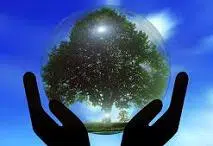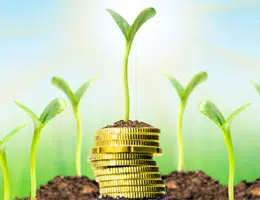 The idea of development refers to progress , advancement or growth . Sustainable , on the other hand, is that which can be sustained with its own arguments .
The idea of development refers to progress , advancement or growth . Sustainable , on the other hand, is that which can be sustained with its own arguments .
With these definitions, we can focus on the concept of sustainable development , which is also known as sustainable development : it is development that can be maintained for a long time without harming the environment or exhausting resources . This means that development can be sustained or supported by itself without affecting the environment or third parties.
In general, the concept of sustainable development is used in the fields of ecology and economics . Sustainable development is a process that can last since it does not cause the depletion of available resources and, therefore, its permanence does not affect future generations. In other words, sustainable development allows current needs to be met without jeopardizing the satisfaction of future needs .
Take the case of a region whose economy is based on the indiscriminate felling of trees and the overexploitation of forest resources. This type of development is not sustainable , since nature is not in a position to quickly regenerate the resources that are used or consumed. Therefore, if we continue at this pace, at some point there will no longer be trees to cut down or land available for cultivation .
On the other hand, a productive activity that does not generate environmental pollution and is based on the use of wind energy can provide sustainable development . This is because the wind does not run out and the activity in question does not harm the environment: that is why it could continue to be carried out indefinitely.
Sustainable development has as its main goals the reconciliation of the social, economic and environmental aspects of our activities and the definition of projects that are viable, so that we can take advantage of nature's resources to satisfy our needs without causing irreparable damage to the environment. atmosphere. Within this concept, there are three fundamental principles that any person, community or company should take into account: economic sustainability , social sustainability and environmental sustainability .
 In the field of sustainable development, we understand by economic sustainability all those activities that are considered profitable and possible from a financial point of view, and that aim to grow the economy of an individual, a community or a company.
In the field of sustainable development, we understand by economic sustainability all those activities that are considered profitable and possible from a financial point of view, and that aim to grow the economy of an individual, a community or a company.
On the other hand is social sustainability , which is based on maintaining social cohesion in the search for common objectives. These are mainly efforts to reduce the negative social impact that the activity carried out may cause, while at the same time enhancing its positive impact. It is also linked to the benefits that local communities can receive to improve their living conditions.
To talk about social sustainability , these benefits must reach all members of the human group that is directly or indirectly involved in the sustainable development activity; For example, in the business environment, it must include employees, customers, suppliers and the local community, giving each one something they need to improve their lives.
The third of the fundamental pillars of sustainable development is environmental sustainability , a concept that revolves around making the activity and care of ecosystems and biodiversity compatible, to prevent them from being destroyed and ceasing to offer us the necessary resources. Achieving this balance point is not easy, but requires an in-depth analysis of the potential impact of the activity, taking into account aspects such as waste and emissions generated.
